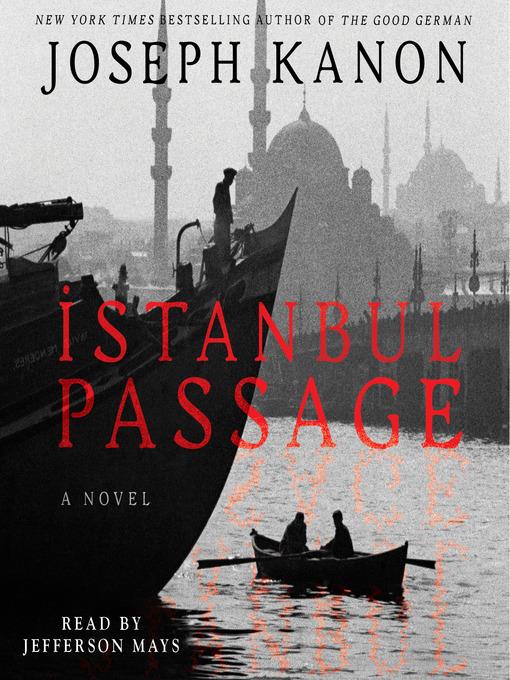
Istanbul Passage
A Novel
کتاب های مرتبط
- اطلاعات
- نقد و بررسی
- دیدگاه کاربران
نقد و بررسی

March 12, 2012
As this tense, complex, and fascinating espionage novel opens, Leon Bauer is on the Bosphorus shoreline north of Istanbul, shivering in the dark, waiting to take custody of a mysterious passenger who is being smuggled from Romania. It is late 1945, and Europe is hastily transitioning from World War II to the cold war. Turkey, a noncombatant, has thrived as a neutral center of business and diplomacy, and now Istanbul is filled with defeated Germans and victorious Russians, blustery Americans, and resigned Turks and desperate Jews, all pursuing vital and divergent agendas. And, of course, spies.
This is the Istanbul in which American businessman Leon Bauer finds himself, having fled here with his German-Jewish wife, Anna, after Kristallnacht in 1938. Leon was unable to serve in the military, but he was resourceful, spoke German as well as Turkish, and before long an American operative asked him to do a favor, a simple courier job. And so Leon began to do his part, an amateur in a professional’s world.
The title, Istanbul Passage, operates on many levels. The main passage is that of the mystery passenger, a journey that forms the core of the suspenseful double-cross–filled plot. The mission is a disaster from the very first sentence of the book, and Leon struggles to make sense of the betrayals while also taking critical responsibility for this stranger’s life, for a man’s safe passage from his wartime identity to his postwar fate. Along the way, Leon must confront the duplicity of nearly everyone around him, a diverse cast of memorable characters with unclear and shifting alliances.
Another passage is that of Jews, from fear in Europe to new hope in Palestine. Although Turkey had been officially neutral during most of the war, unofficially Istanbul had been a center for human trafficking. This had been Anna’s chief concern: the life-or-death business of transporting refugees via unsafe boats through dangerous waters. But when one of these missions failed tragically, Anna sank into a fugue state and is now shuttered in a clinic, completely uncommunicative.
There’s also the passage as a geographical designation, and in this regard Kanon’s book is a swirling, impressionistic treat, a sensory feast on one of the most delectable cities in the world, the confluence of the Islamic and the Christian, the ancient and the contemporary, the Asian and the European (straddling the Bosphorus, it is the only city in the world on two continents). The descriptive passages, the period tourism, are transporting.
Finally, there’s Leon’s journey—rather, his many journeys—as protagonist. From a civilian to a spy to whatever will follow. From a temporary expat to a possibly permanent resident. From a blind patriot to an independent operator. From a happily married man to something else. From an idealist to a pragmatist. Istanbul Passage is a first-rate espionage novel, filled with complexity and thrills, but its greatest success may be in this much more universal literary exploration: how an ordinary man is transformed by extraordinary circumstances.
Chris Pavone is the author of the debut novel The Expats, on sale March 6 (Crown).

























دیدگاه کاربران